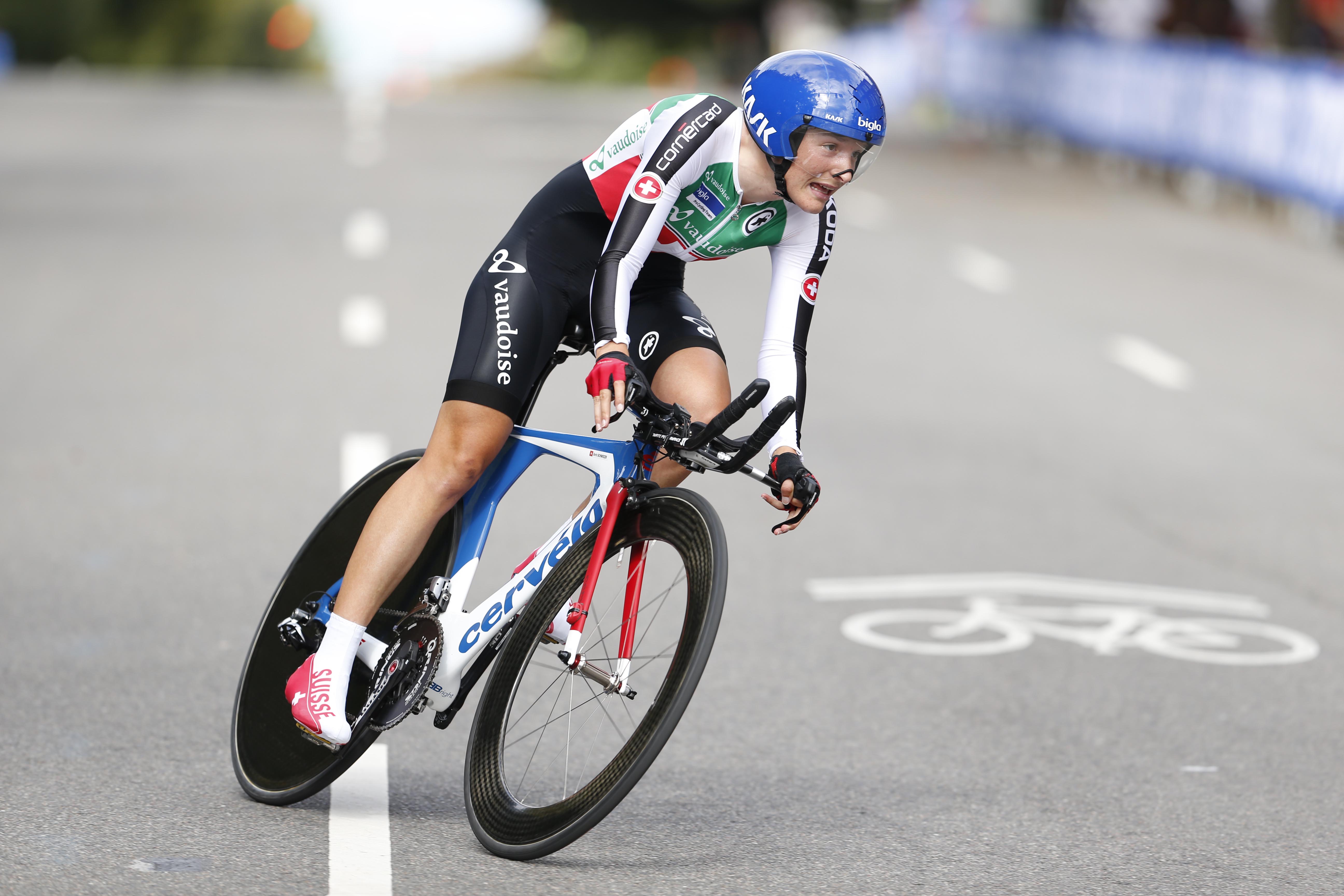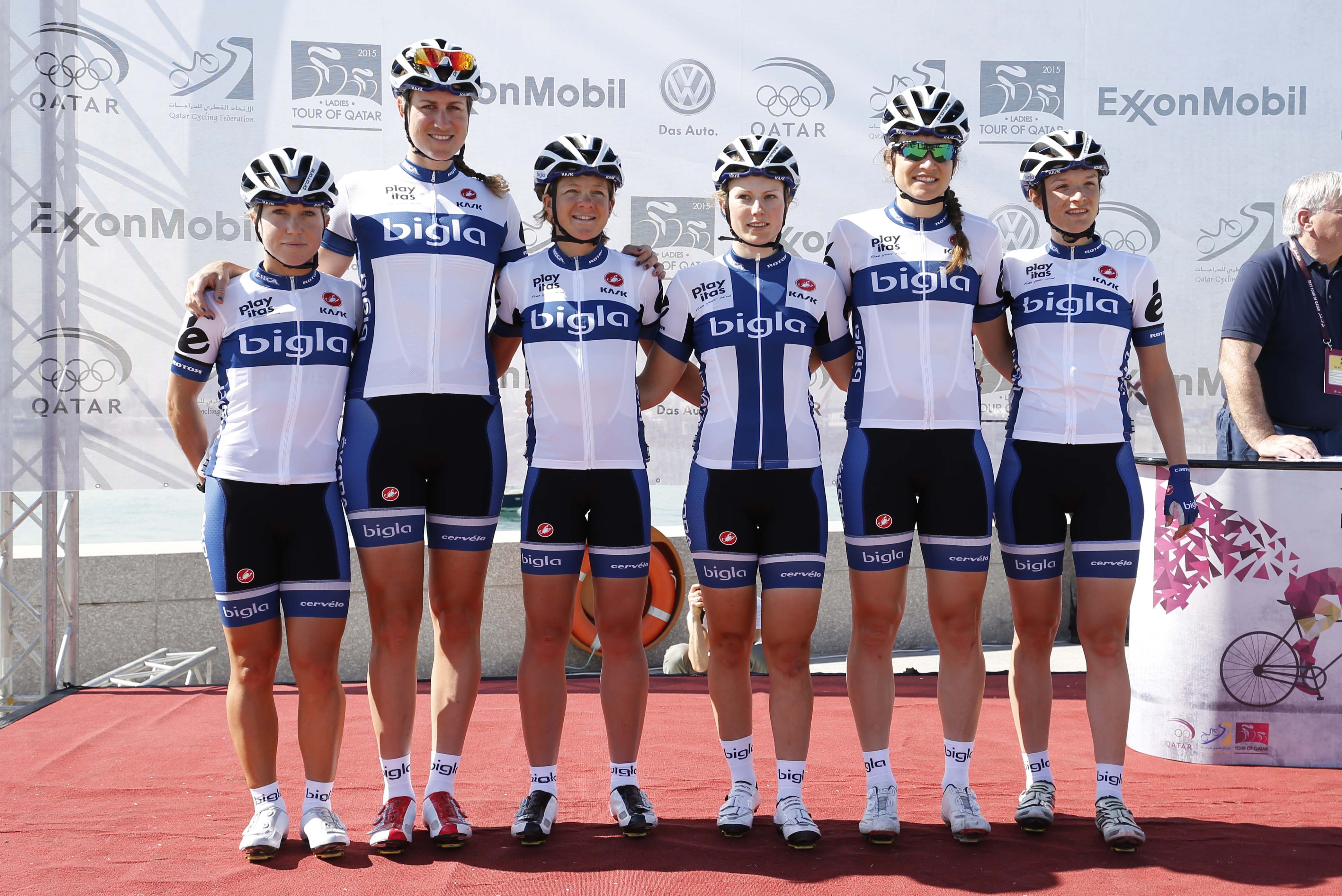Bigla abuse allegations: former rider describes racing despite 'total loss of control' following concussion
Doris Schweizer, now racing for Virtu Cycling, says title sponsor Bigla has never contacted her to ask questions about the allegations of abuse


The latest race content, interviews, features, reviews and expert buying guides, direct to your inbox!
You are now subscribed
Your newsletter sign-up was successful
Former Cervelo-Bigla rider Doris Schweizer has described racing despite concussion which caused a 'total loss of control', in a statement made about abuse at the team.
Team owner and manager Thomas Campana was accused of abuse of power on several counts following the 2015 season, with complaints including intimidation, fat shaming, ignoring medical conditions and manipulation.
Campana denies all allegations, which riders say took place over the course of the 2015 and 2016 seasons.
Schweizer, who now races for Virtu Cycling, detailed her experiences in a blog post, writing: "I did not want to comment further, but due to extreme reactions, I would like to share some personal thoughts."
The now 29-year-old described a heavy crash at the Giro Rosa: "I crashed hard and was not in shape to continue. But as a noble helper, I did not have the "right" to get out [for] my health. The pressure was so great that... driving home was simply not an option.
"I went to the race doctor and he said he did not give permission for me to start, which then put me in a very uncomfortable situation, because I started the next day anyway."
The latest race content, interviews, features, reviews and expert buying guides, direct to your inbox!
"I could barely go straight because I had huge problems with the vision. I was dog-sick, I was misjudging myself with distances and speeds. Total loss of control! Somehow I managed to finish the stage.
"Fortunately, the next morning, our team doctor called and informed about the health risks and long-term consequences, after which I was immediately sent home. However, the consequences were already serious."
Schweizer says she still suffers with symptoms following the concussion, writing: "Unfortunately, the consequences of this concussion accompany me today.
"Sometimes I have extreme headaches, vertigo or difficulty concentrating. I handle stress and pressure worse [and] I sometimes have extreme mood swings... I would have preferred that I had broken 100 bones."
Going on to describe events which unfolded once it was rumoured that she had signed for a new team (Cyclance Pro Cycling) for 2016, Schweizer says: "[Campana] forbade me to talk to other team riders... For the World Cup in Richmond, he did not want to give me my time trial bike, so I [was not able to] prepare for it and he also tried by all means to prevent a start at the European Championships in Grenchen."
"He tried to emotionally blackmail me to sign for another year."
"It is shocking how many people consider such behaviour in professional sports to be "normal" or "necessary". I am convinced that you can force good performance in the short term but can only achieve outstanding performance through your own motivation."

Ten former riders filed complaints against owner and manager Thomas Campana with the UCI Ethics Commission in March 2016, accusations included bullying, intimidation, fat shaming and ignoring medical complaints.
When it transpired these could not be made anonymously, five withdrew their statements and one rider, Iris Slappendel, submitted complaints on behalf of the other five.
At the time of the alleged abuse (2015), the Code of Ethics did not include teams or staff, so there was no legal basis for the complaint. The UCI Code of Ethics was updated in 2016, to include teams and staff - with several more changes made to further protect riders and employees of UCI Women's Teams, with anonymity added.
In 2018, several riders including Schweizer as well as Slappendel, Carmen Small and Vera Koedooder shared their complaints about Campana with Dutch newspaper de Volkskrant.
Accusations included telling riders as young as 19-years-old that they could not eat carbohydrates on a training camp, and must drink only water when riding due to being "too fat."
Slappendel told de Volkskrant:"After three days, one was sick, she could no longer cycle for the rest of the camp. According to him, she was a weakling."
Campana denied all allegations, saying: “If you feel good mentally you can achieve success. Our programme is based on that.”
de Volkskrant reported that he denied giving advice to cyclists about their health and nutrition, and said that Schweizer had hidden her concussion, because she "desperately wanted" to finish the race.
The UCI women's team now competes as Bigla Pro Cycling. Schweizer says that main sponsor Bigla has still not taken the chance to "make up for lost time or to ask questions", adding "in my opinion that alone draws a clear picture."
Michelle Arthurs-Brennan the Editor of Cycling Weekly website. An NCTJ qualified traditional journalist by trade, Michelle began her career working for local newspapers. She's worked within the cycling industry since 2012, and joined the Cycling Weekly team in 2017, having previously been Editor at Total Women's Cycling. Prior to welcoming her first daughter in 2022, Michelle raced on the road, track, and in time trials, and still rides as much as she can - albeit a fair proportion indoors, for now.
Michelle is on maternity leave from April 2025 until spring 2026.
